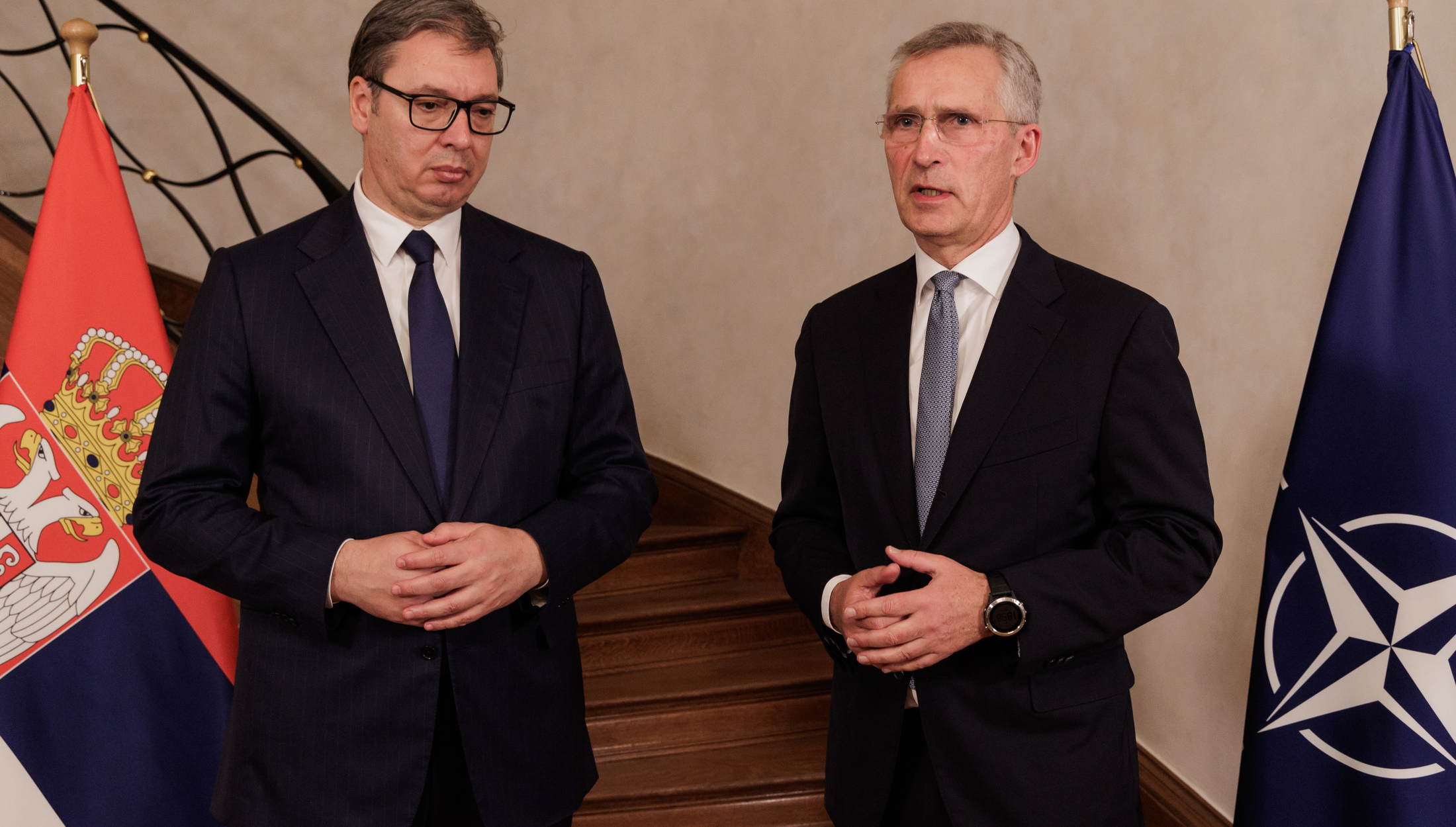The three policemen were arrested last week, but the location of their arrest is disputed by Kosovo.Continue reading
NATO has increased its presence in northern Kosovo by around 500 troops in response to tensions there, NATO Secretary General Jens Stoltenberg said at a press conference with Serbian President Aleksandar Vucic on Wednesday evening. Stoltenberg recalled that NATO has been present in the region for several years with its UN-backed peacekeeping mission KFOR, which is conducting impartial operations.
The reinforcement of the force was necessary, among other things, because of the attack on some of their units in May. Stoltenberg called for a reduction in tensions and for the parties to refrain from actions and statements that could lead to escalation. He said that dialogue is the way forward and hoped that Serbia would participate constructively.

Serbian President Aleksandar Vucic and NATO Secretary General Jens Stoltenberg. Photo: NATO
Aleksandar Vucic expressed his concern about the situation in northern Kosovo, pointing out that for Serbia, the issue has become a security concern.
He said that the incident in May was, in his opinion, due to the irresponsible attitude of the authorities in Pristina. He also expressed concern that the case was not being investigated in any meaningful way, while “unjustified and arbitrary arrests of Serbs” were being made. At the same time, he stressed that Serbia maintains good relations with KFOR troops, but pointed out that the corps should also ensure the security of local Serbs.
In June, three Kosovan police officers were detained by Serbian authorities. The Serbs claimed that they detained the officers in the middle part of Serbia, while Kosovo said that their police officers were taken from their territory.
The issue was discussed by Hungarian Prime Minister Viktor Orbán and Serbian President Aleksandar Vucic in a meeting, after which Orbán asked Vucic to release the Kosovan officers. Soon after the talks, the prime minister reported on his Twitter account that in accordance with the request made at their meeting, the Serbian authorities would release the three previously arrested Kosovo policemen from custody.
In Kosovo, riots broke out at the end of May when Albanian mayors, elected on the basis of Albanian votes cast in the Serb-majority region with a turnout of only 3.5%, tried to take office after the local elections were boycotted by local Serbs. Local Serbs also attacked Kosovo police and KFOR soldiers. In the clashes, 27 Hungarian soldiers serving in the framework of the KFOR were injured while carrying out their duties in the village of Zvecan.
Hungarian soldiers have been taking part in Balkan operations since 1995, in the interests of the country’s security policy. Hungary has been contributing regular officers and a contingent to the NATO-led KFOR operation since 1999. Currently, there are around 400 Hungarian officers serving the KFOR.
Featured photo via Facebook/NATO Kosovo Force – KFOR